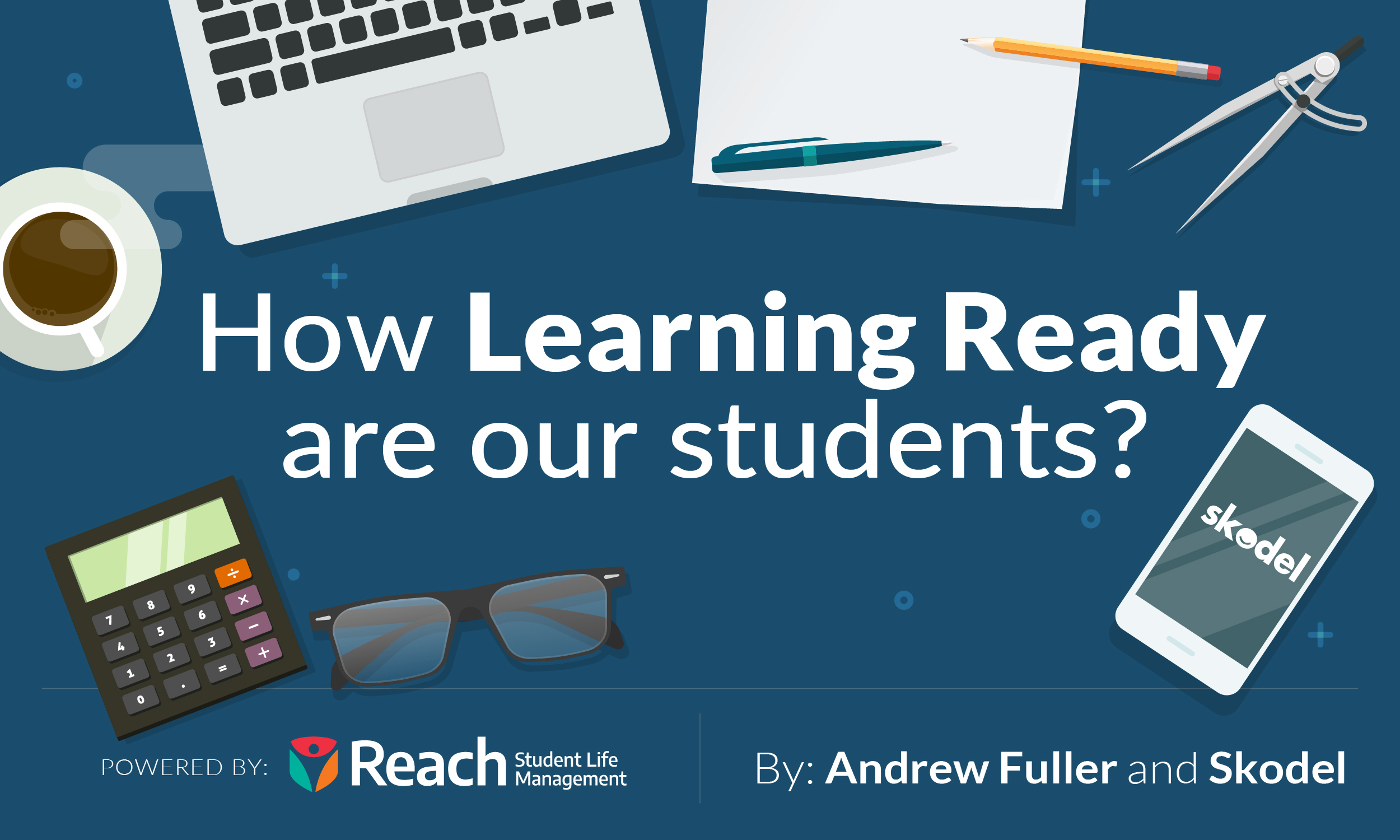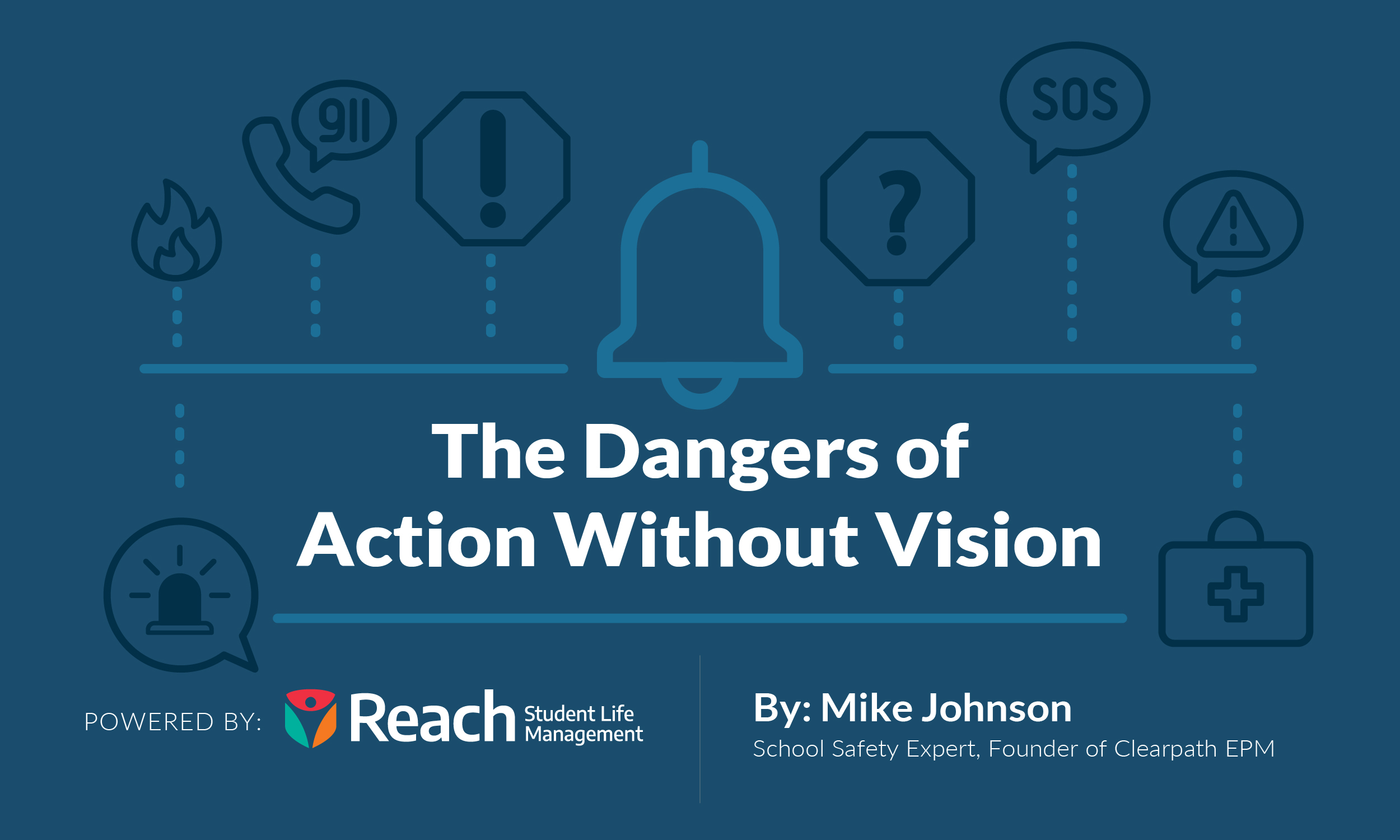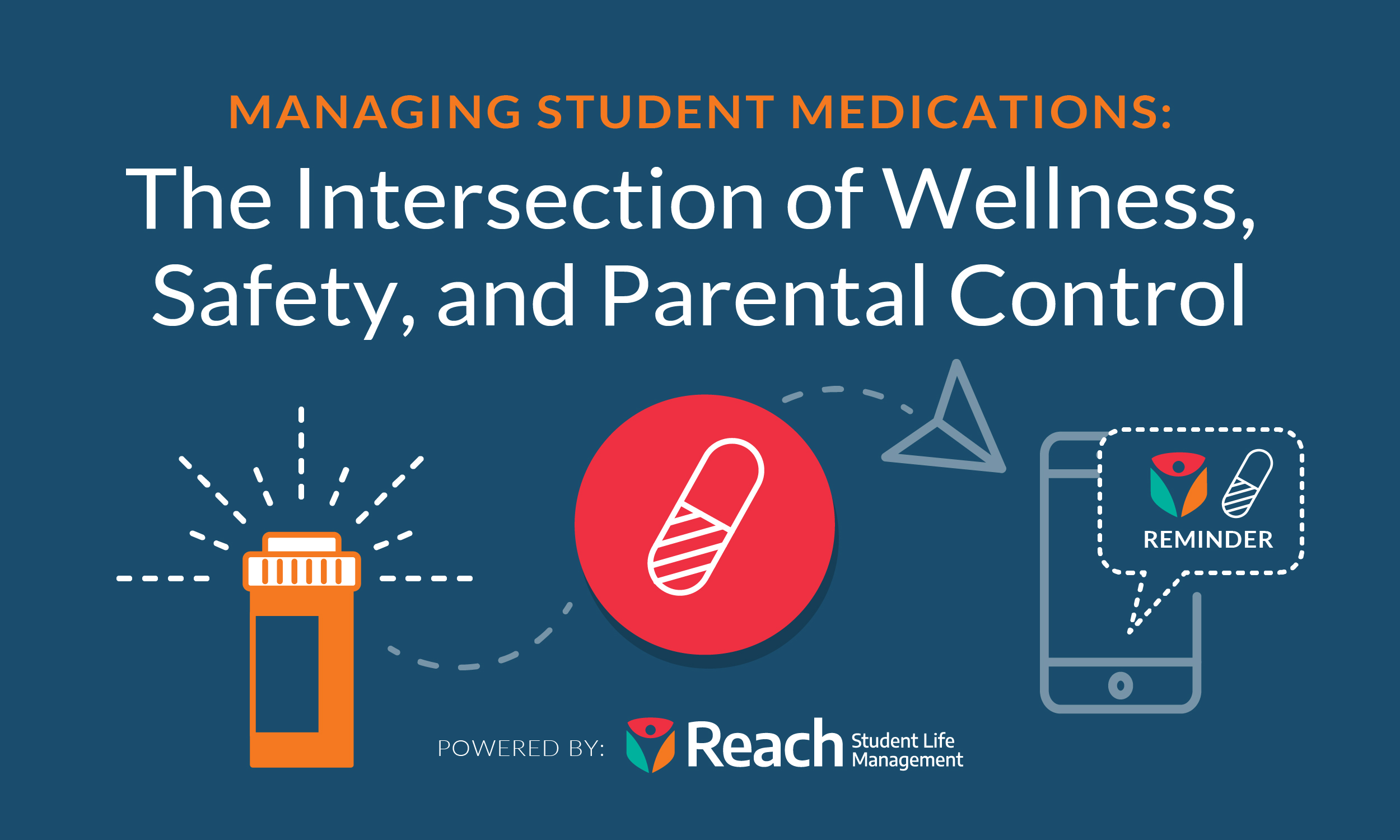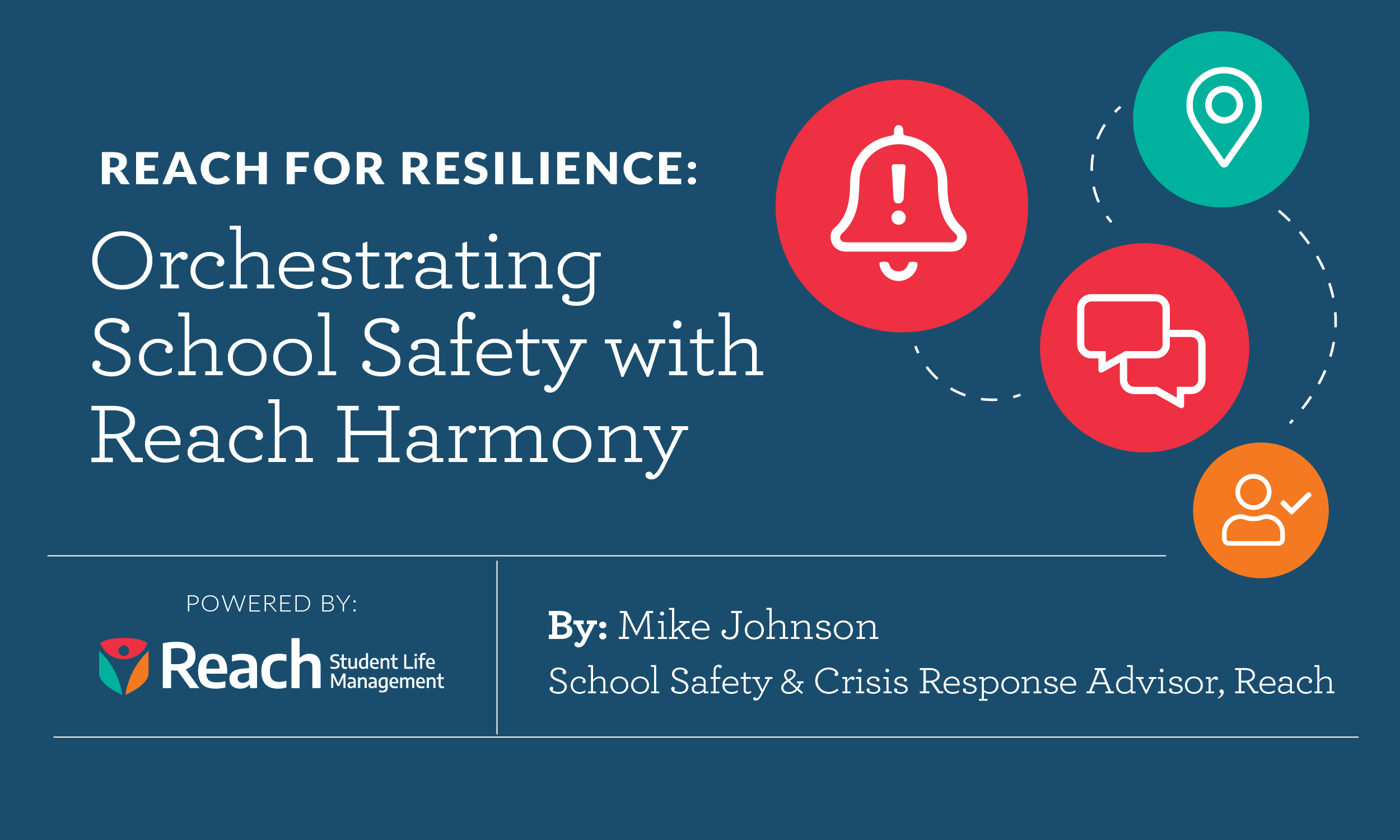How ‘learning ready’ are our students?
Together with Andrew Fuller, Skodel analysed key trends in student readiness to learn. The below findings provide up-to-date information from the voices of students.
Motivation and confidence varied greatly among students as seen below:
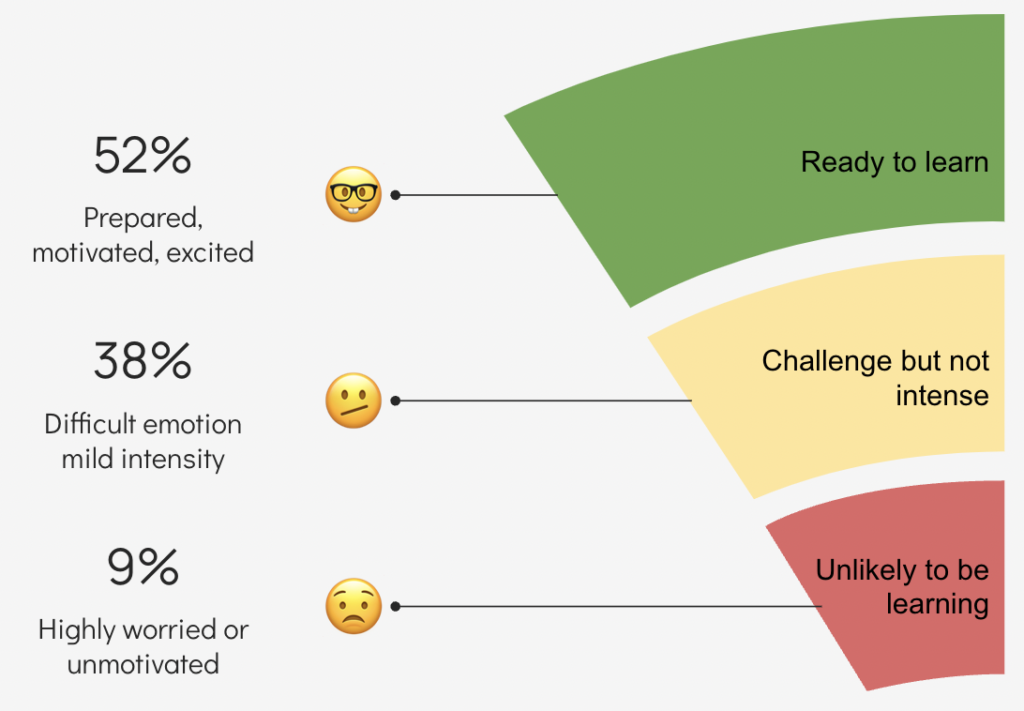
The factors students identified as inhibiting their learning reading were analysed into three main groups.
Pressure from families and themselves:
When students expressed concerns about feeling unprepared, unmotivated, or worried, approximately 60% of the time these feelings were attributed to high levels of pressure from themselves and often also from their families.
This suggests that internal and external expectations are major contributors to student anxiety about academic performance.
Regulating anxiety and building self-efficacy as well as knowing how to plan and improve marks are major factors that impact on motivation.
Concentration and finding a good study routine:
Close to 50% of students who reported negative feelings about their upcoming learning for the term mentioned difficulties with concentration and establishing an effective study routine.
Many students also pointed out that excessive device usage exacerbated their concentration issues, indicating a need for better digital habits or perhaps more structured guidance in managing their study time.
Getting enough restful sleep and achieving a balance of on and off-line lives is a major determinant of learning readiness.
Lack of connection in the classroom
About 40% of the students felt a lack of connection with classmates, which they linked to their lack of engagement and a general feeling of being unmotivated for the term. This lack of connection can affect their engagement and overall motivation, which are critical for a successful learning experience.
This indicates the need to rebuild social networks and supportive classrooms.
Are these trends you are noticing in your classroom? We’d love to hear from you!
About The Author: Andrew Fuller
He is the author of TRICKY KIDS, GUERILLA TACTICS FOR TEACHERS, HELP YOUR CHILD SUCCEED AT SCHOOL, (RAISING REAL PEOPLE (ACER), FROM SURVIVING TO THRIVING (ACER), WORK SMARTER NOT HARDER and BEATING BULLIES. Andrew has also co-authored a series of programs for the promotion of resilience and emotional intelligence used in over 3500 schools in Britain and Australia called THE HEART MASTERS.
Andrew has established programs for the promotion of mental health in schools, substance abuse prevention, and the reduction of violence and bullying, suicide prevention programs and for assisting homeless young people. Andrew continues to counsel young people.
Andrew conducts workshops for organisations, parents, students, teachers and health professionals on a wide range of topics.
Skodel is a mental health survey platform focused on short surveys with support in place for all situations. Wellbeing and safety teams use Skodel to send mental health surveys, provide support and document actions taken to address mental health inside their organisation. We support schools, universities and workplaces.
